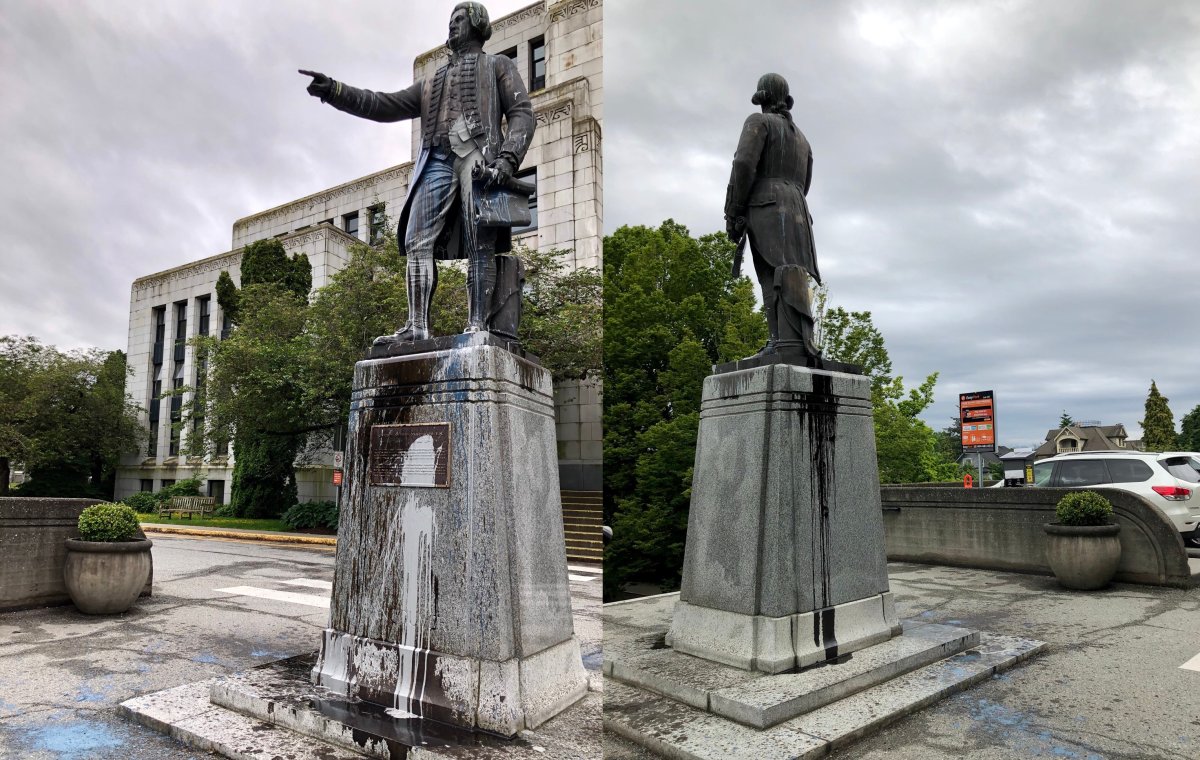A law professor at the University of British Columbia says it’s time for people to come to terms with the fact many public statues and monuments uphold and commemorate Canada’s colonial legacy.

Mary Ellen Turpel-Lafond, head of UBC’s Residential School Centre and the province’s former representative for children and youth, made the comments after a statue of George Vancouver was defaced outside of Vancouver City Hall on Wednesday night.
Turpel-Lafond says some of the historical figures Canadians have chosen to memorialize were responsible for horrific atrocities against Indigenous people.
“The depth of feeling that First Nations people have about this matter, but also the suffering that has happened in the Indigenous community in Canada because of some of these so-called titans of our nation’s history, is something that we have to come to grips with,” she told Global News.

Vancouver is best known as an explorer, and charted much of the B.C. coast in the 18th century.

Get daily National news
However, he also played an imperial role, claiming the area we know today as Puget Sound in the name of King George III.
Turpel-Lafond argued that stories of George Vancouver’s “good relationship” with Indigenous people in B.C. are probably examples of whitewashed history, adding that many colonial figures were written about as saviours of Indigenous people.
She said a serious commitment to reconciliation means understanding that whitewashed history, and the acknowledgement that Indigenous history has been largely erased.
“As if the only figures worthy of having in a monument are those of European background who came and so-called ‘discovered’ North America,” she said.
The vandalism comes as anti-racism protesters target statues around the world, in several cases tearing them down or removing their heads.

Calls are also growing around the world to remove statues of historical figures who shared discriminatory or hateful perspectives more common to their time.
In Montreal, more than 9,000 people have signed a new petition calling for the John A. Macdonald to be removed from the Place du Canada Park, over his documented hostility to Indigenous peoples.
In 2018, a statue of Macdonald was removed from Victoria City Hall.
Turpel-Lafond says there needs to be an active process for re-examining the memorialization of those figures in statues, street names, and schools, and recognizing those names uphold Canada’s colonial legacy.
Graffiti removal crews spent Thursday removing paint splatters from the statue.
Vancouver police say they are investigating, calling the incident “unfortunate.”
— With files from Simon Little and Amy Judd








Comments